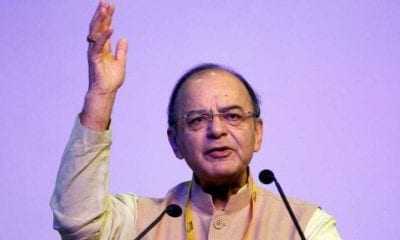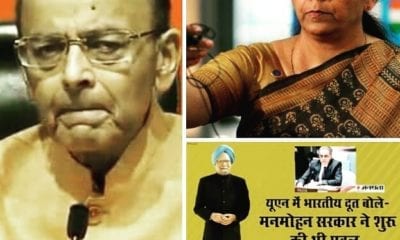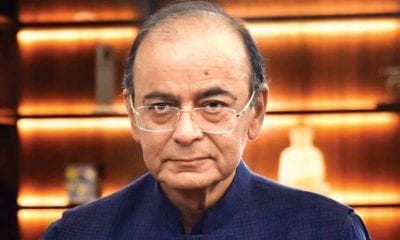Budget
FM Arun Jaitley may not cut corporate tax rates in Budget

The government is unlikely to keep its promise of reducing the corporate tax rate to 25% from 30% at present. With tax collections below expectations and the government struggling to meet the fiscal deficit target, finance minister Arun Jaitley may hold the corporate tax rates, even as big corporates wait for the government to deliver on the promise to reduce corporate tax.
Jaitley had in Union Budget 2015 promised to reduce corporate tax rates to 25% over the next four years from 30%. This was to be accompanied by a corresponding phasing out of tax exemptions and deductions for which the government laid down a two-year roadmap.
“The promise remains unfulfilled until now. Probably, the government couldn’t garner taxes under the amnesty scheme and demonetisation couldn’t deliver on the expectations. Meanwhile, the government has to manage the fiscal deficit at 3.3% of the GDP,” says Samir Kanabar, tax partner, EY India.
“We will have to wait and watch until the new government is formed and full Budget is presented,” he said.
In the last Budget, the government had reduced the tax rate to 25% for small companies with annual turnover of up to Rs 250 crore in the Budget. Though it benefited 95% of the companies, it did not cover the big businesses which pay the majority of taxes. With the National Democratic Alliance government presenting its last Budget, the big businesses too are expecting the government may keep the promise.
Industry lobby groups Confederation of Indian Industries (CII) and Federation of Indian Chamber of Commerce & Industries (FICCI) have demanded that the corporate tax rate should be reduced to 25%. “The tax rate on all the corporate taxpayers should be reduced to 25% unconditionally without any turnover criteria, and should be brought down to 18% in a phased manner and withdraw tax incentives, exemptions, surcharges and cess,” CII said in its pre- Budget demands. Ficci and Assocham in the pre-Budget consultation with the FM, too, demanded a cut in the corporate tax to 25%.
Although all over the world overall tax has started coming down. “India is one of the largest economies which has corporate taxes on the higher side. The US has reduced it to 21% and the UK has brought it down to 18%. So in the light of the global development, it is time for the government also to cut the rate of corporate tax,” Kanabar of EY said.
width: 700px; height: 588px; border-width: 1px; border-style: solid;
However, the government officials feel that the reduction in tax rates has to be accompanied by a host of measures to increase the tax base.
“If the countries in the European Union (EU) are talking about reducing rates, they are also talking about anti-avoidance measures. If the US has reduced the tax rate to to 21% it also has anti- avoidance tax and a tax on intangibles. It has various ways in which it is ensuring that the tax base is augmented,” a senior finance ministry official said.
“The tax rate cut for all corporates to 25% is likely to be phased out over time, but not expecting big corporate tax cuts in the interim Budget,” says Rohinton Sidhwa of Deloitte.
Maulik Doshi, partner, SKP Business Consulting too doesn’t expect any further reduction, especially given that this is an interim budget. “There has been a long standing demand from the industry to abolish Minimum Alternate Tax (MAT) and also Dividend Distribution Tax (DDT). However, given the election year, doles if any would be for the masses and not for corporate class and hence again I do not see any significant change for the corporates,” he said.
“To reduce tax rates the government either will have to expand the tax base or levy a new tax or increase taxes elsewhere. The government will have to do the balancing act,” Sidhwa said.
“The government is trying to balance out before reducing the corporate rate for all to 25%. By the time the tax concessions are eased out, the large corporates will be given the benefit,” Kanabar said. “The government has done away with a lot of deductions and exemptions such as Export Oriented Units (EOU), Software Technology Parks (STP), infrastructure tax holiday, Special Economic Zones (SEZ) tax holiday. While the tax holiday is set to end in 2020, the other exemptions and deductions will end by March 2019. All the exemptions and deductions which are being reduced in a phased manner should largely be over by 2023-24,” he said.









































